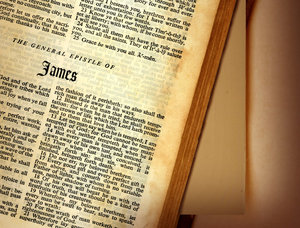The Bruised Reed
He will not cry aloud or lift up his voice, or make it heard in the street; a bruised reed he will not break, and a faintly burning wick he will not quench; he will faithfully bring forth justice. He will not grow faint or be discouraged till he has established justice in the earth; and the coastlands wait for his law (Isaiah 42:2-4).
Justice is somewhat of a wax nose in our culture. Everybody is for it, but we can’t seem to agree on what it is. Pro-life people rightly see the protection of the fatherless and the widow—in our day the unborn and their mothers—as an issue of basic justice. And yet abortion advocates will also argue that a woman’s right to choose an abortion is a matter of “reproductive rights,” or justice.
Justice, however, is not a wax nose, but rather has solid form and definite contours—as firm and definite as the character of the Lord Himself. In effect, justice is when the world conforms to the way God intends for it. It may not agree with our conception of justice, but that won’t be first time people have said ‘The way of the Lord is not just’ (Ezekiel 18:25, 33:17).
The Isaiah text here is good news for a world burdened by abortion, for in bringing forth justice, the promised Messiah will not break the bruised reed, nor quench the faintly burning wick. He is patient with the weak, and shows compassion to the downtrodden and distressed. Hear the words of 17th Century English pastor Richard Sibbes:
The bruised reed is a man who for the most part is in some misery, just as those were who came to Christ for help, and by misery he is brought to see sin as its cause, for, whatever pretences sin makes, they come to an end when we are bruised and broken. He is sensible of his sin and misery, even to his bruising; and, seeing no help in himself, he is carried with restless desire to have supplies from another, with some hope, which raises him a little out of himself toward Christ, though he dare not claim to have gained any present interest of mercy. This spark of hope being opposed by doubts and fears rising from his corruption makes him like smoking flax; so that both these together, a bruised reed and smoking flax, make up the state of a poor distressed man. This is such a person as our Savior Christ terms “poor in spirit” (Matt. 5:3), who sees his wants, and also sees himself indebted to divine justice. He has no means of supply from himself or the creature, and thereupon he mourns, and, upon some hope of mercy from the promise, and examples of those that have obtained mercy, he is stirred to hunger and thirst after it.
Bringing forth justice is not something separate from tenderness and patience with the hurting and heavy-laden. The church does not proclaim justice only by denouncing sin, for the lifting up of the downtrodden is part of what it means for the Lord to bring forth justice. For, again, justice exists when things conform to the Lord’s intentions. And it is the Lord’s intention that the weary be comforted, and the broken be healed. The Lord’s word concerning abortion is certainly a word of judgment, but it is also a word of hope for the weary. As it will be when the Messiah establishes justice in all the earth.











